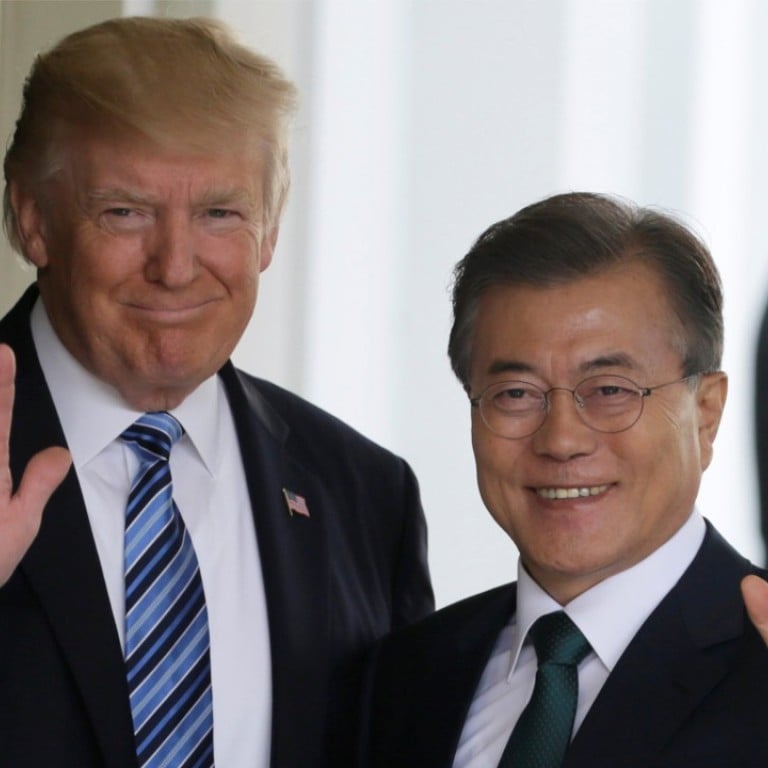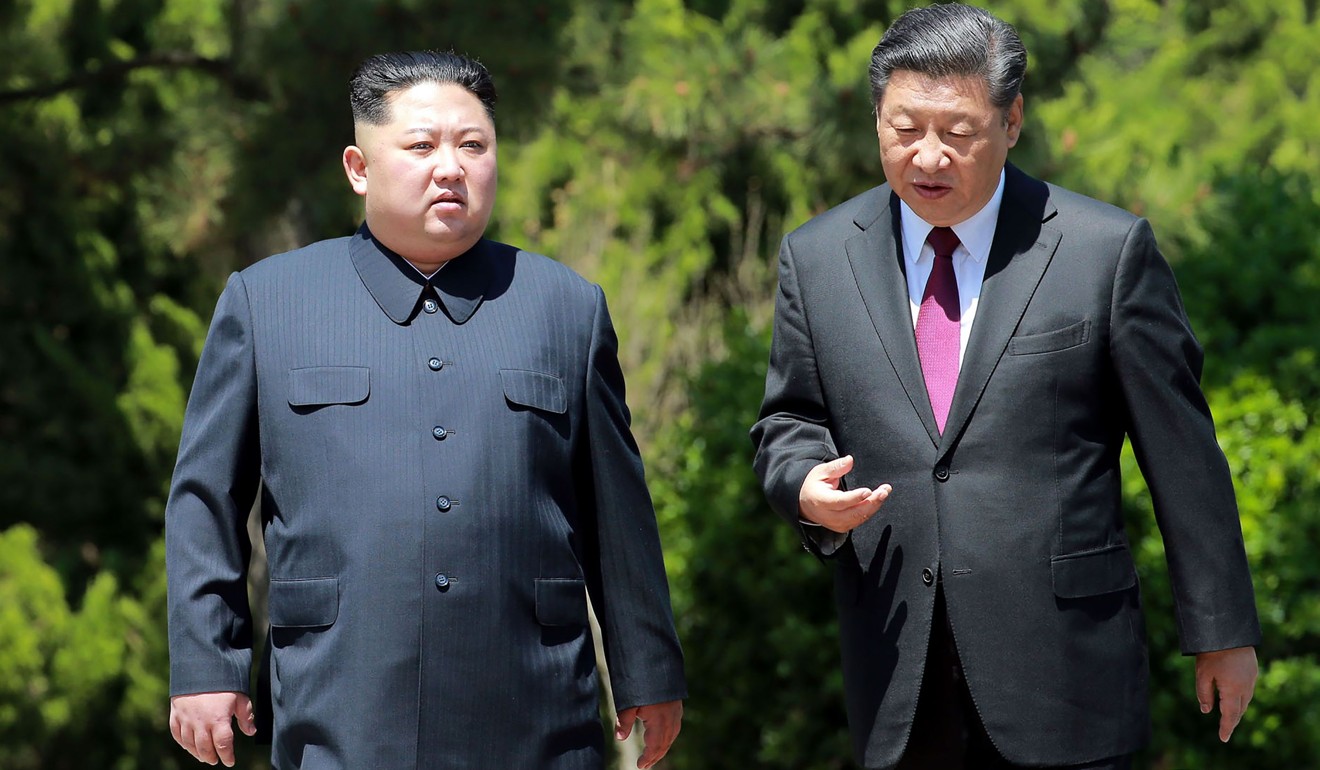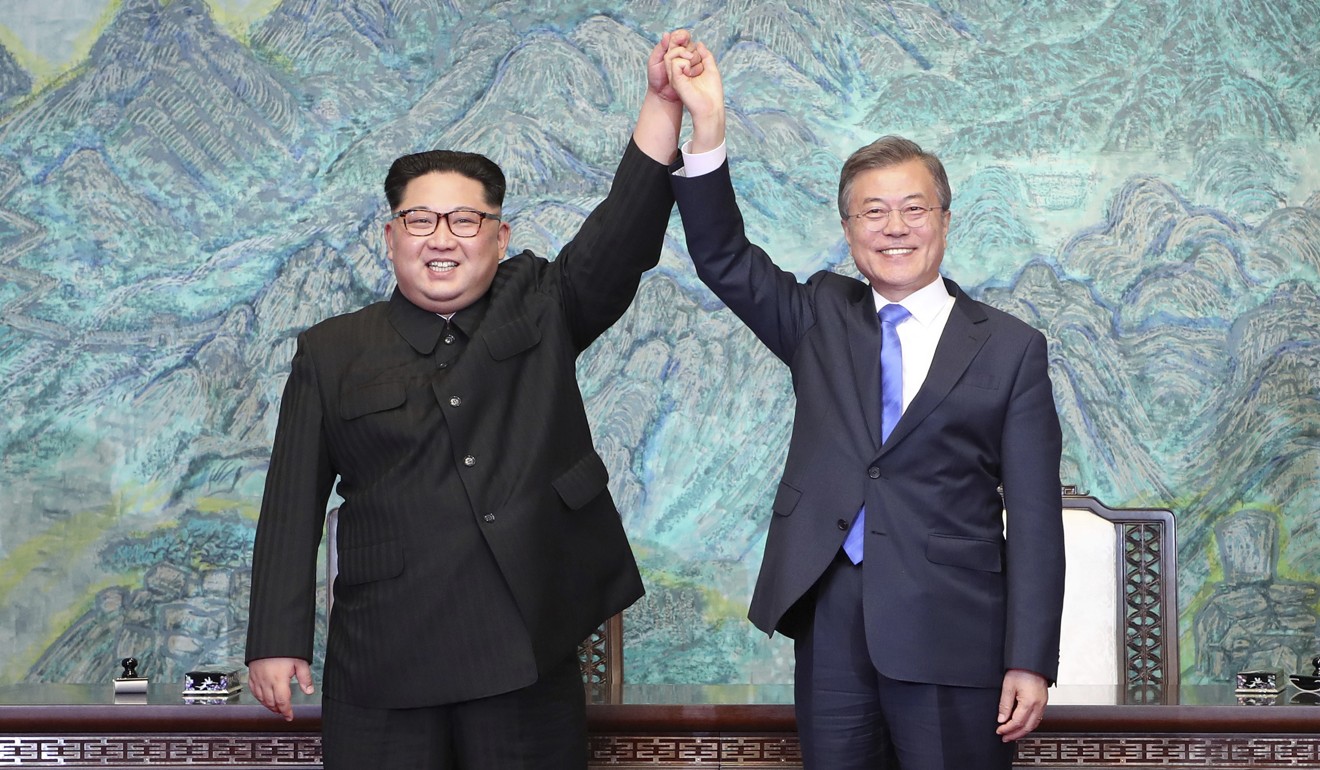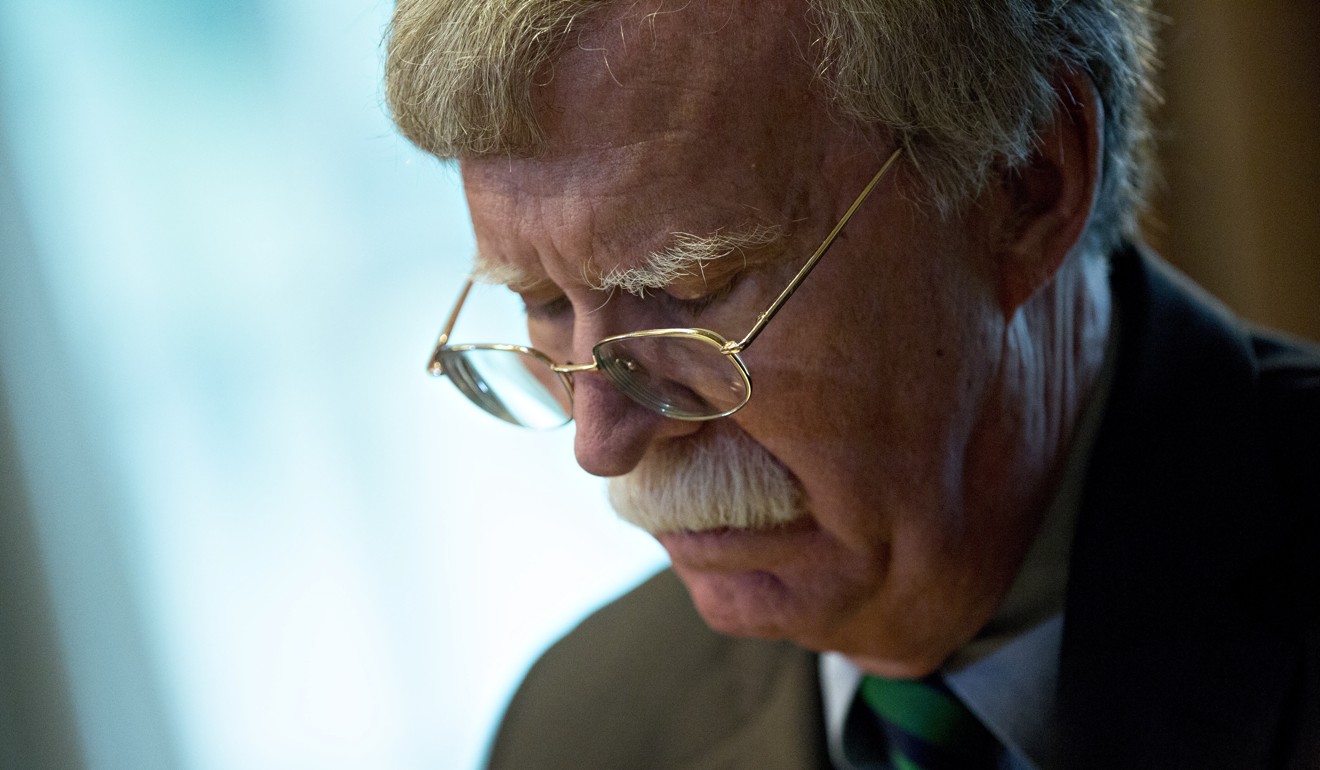
Donald Trump ‘offered to ease ZTE sanctions to persuade China to help with North Korea summit’
An inside source said that ‘it doesn’t look like [North Korea] wants to denuclearise at all’ as US officials worry about the planned talks on June 12
The White House has been rattled by North Korea’s recent about-face in negotiations over its nuclear weapons programme, with US President Donald Trump calling South Korean President Moon Jae-in for his thoughts on the matter, an insider has revealed.
Fearing that China has poisoned North Korean leader Kim Jong-un against him, Trump also attempted to extend an olive branch to President Xi Jinping by offering to ease sanctions on Chinese telecoms company ZTE, a second source said.
North Korea demands Seoul return waitress ‘defectors’ from China
The moves come with just over three weeks to go before Trump is to meet Kim in Singapore on June 12 in a summit that Pyongyang has threatened to pull out of.
That came in sharp contrast to the more positive and constructive tone it held after Moon met Kim last month.
The call lasted less than 30 minutes, the official said, and is indicative of concerns in the White House, which has already sent an advance team to Singapore to work out logistics for the planned meeting.
Trump announced publicly last week that he believes North Korea’s tone changed after Kim’s second visit to Beijing to meet with Xi.
ZTE must change management to get US reprieve, White House adviser says
China has accounted for 90 per cent of trade with North Korea, and Beijing’s cooperation in enacting UN Security Council sanctions on North Korea has been a crucial part of the Trump administration’s “maximum pressure” strategy.
“Since the China visit, they’ve moved pretty dramatically, shifted in the last several weeks to North Korea’s old position,” the US official said.

Inside the West Wing, aides said Trump was upset by Kim’s first visit to China in March, ahead of which Beijing did not notify the White House.
The president reacted angrily in a national security meeting, according to an administration official, and Xi later wrote a letter assuaging Trump.
Trump’s concerns over China’s influence in the summit with Kim were reflected in the president’s tweet last week in which he declared that his administration was looking at ways of potentially assisting ZTE.
Trump defends ZTE support as part of ‘larger trade deal’ with China
The company is a Chinese phone maker that has been struggling in the wake of US economic sanctions for dealing with Iran.
Trump’s public pronouncement was aimed, in part, at trying to keep the Chinese pressure on North Korea, said the administration official, who also spoke on the condition of anonymity to discuss internal deliberations.
On Thursday, Trump tried to reassure Kim that the United States would not seek his ouster in a denuclearisation deal, a statement that appeared aimed at trying to keep the summit on track.
But Trump also warned that if no deal was made North Korea could suffer the same fate as Libya, whose dictator, Moammar Gaddafi, was overthrown and killed in 2011 after that nation relinquished its nuclear programme amid international pressure eight years earlier.
Trump promises Kim power if he plays along; death if he doesn’t
National security adviser John Bolton, who was the first to invoke Libya, incurring the wrath of North Korean officials, has reportedly been telling colleagues that he doesn’t trust that the summit will go well.
He has also reiterated his long-standing belief that he does not trust the North Koreans, a different person familiar with his views said.
Aides emphasised that Trump remains committed to meeting with Kim and that planning is moving forward but that time is running out to nail down an agenda and finalise several outstanding issues.

The senior US official said Pyongyang appears to be trying to extract more concessions from the United States before the summit, or to be building a narrative to blame Trump if things go poorly in Singapore or to pull out of the summit entirely.
“People need to get real here after the euphoria of the peace summit” between Moon and Kim, said the US official, who spoke on the condition of anonymity to discuss private deliberations.
The official said the North Koreans have already failed to abide by some of their commitments in the “Panmunjom agreement” that was signed at the inter-Korea summit.
China tells Trump stay calm over Kim threat to cancel summit
“They’re hedging, creating a sub-narrative,” the US official said. “They’re not backing out yet. Neither is the president. It doesn’t look like they want to denuclearise at all.”
The official added: “It’s true there’s more coordination that needs to be done that hasn’t been done. There’s still time, but not a lot of it.”
Among the administration’s concerns is that although the Kim regime promised to destroy its nuclear test site, North Korea has not sanctioned any foreign inspectors or journalists to enter the country to confirm that such a process is underway.
Last week, a top Kim aide blasted Bolton, a North Korea hawk who has suggested the United States won’t lift economic sanctions until Pyongyang dismantles its nuclear programme.
Many foreign policy and nuclear security experts said it remains highly unlikely that North Korea would be willing to abandon its programme and that Kim’s goal is to establish himself on the world stage as the powerful leader of a nuclear-armed state.
If Trump-Kim summit happens, what next? China-US relations offer clues
“The North’s attitude is a pretty long distance away from what it appeared to be as Moon portrayed,” the US official said. “It’s looking pretty different from that. It’s looking more like the old playbook.”
Moon is scheduled to visit Trump at the White House on Tuesday to coordinate strategy ahead of the Singapore summit.

A liberal who took office last year, Moon has been an instrumental player in the diplomatic outreach to Pyongyang, having restarted long-dormant talks ahead of the Winter Olympics, which were held in South Korea.
That led to talks between the two countries, during which Kim offered to meet with Trump. The president accepted the invitation in March.
But Trump’s decision has been fraught with risk, given that former US diplomats who have negotiated with North Korea under previous administrations have warned that the Kim family regime has a long history of violating international agreements to curb the nation’s nuclear weapons and ballistic missile programmes.

